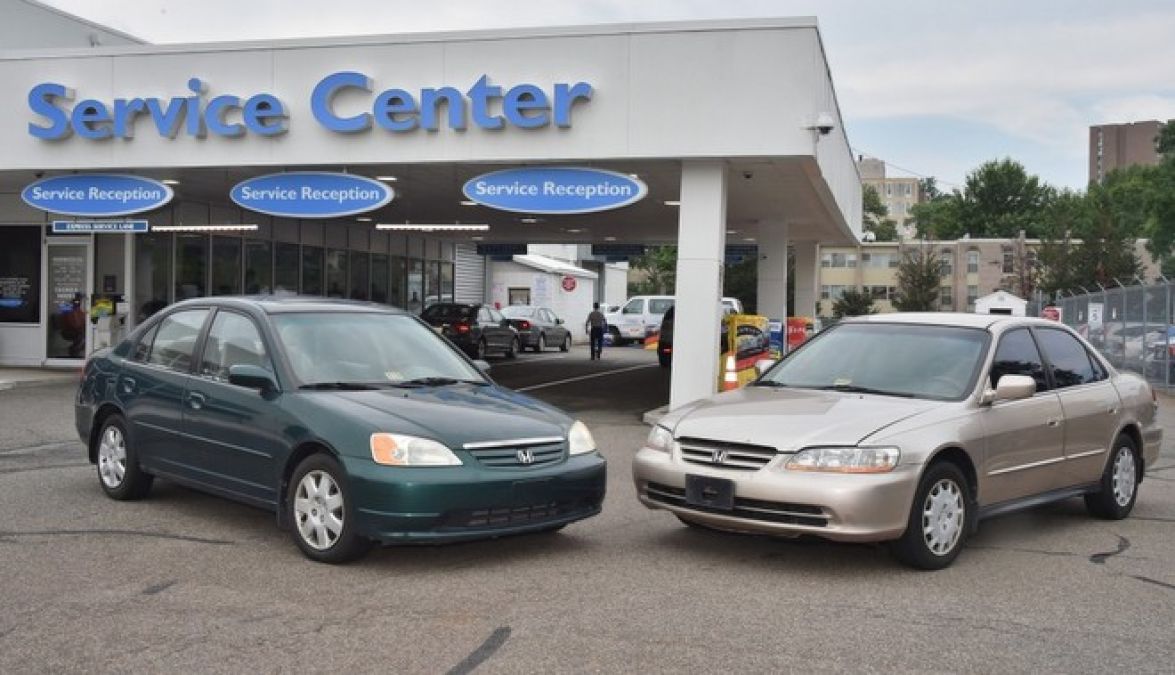Sometimes it takes incredible flexibility, so an outstanding program moves ahead quickly in the world of the car. Take Honda, for example. To speed finding the millions of vehicles that must have their driver-side and front passenger-side airbag inflator modules replaced as part of the ongoing Takata airbag inflator safety recall, Honda has partnered with CCC, an industry-leading developer of software for independent body repair shops. CCC has developed software that helps to find Honda and Acura vehicles with open Takata airbag module recall notices.
Augments Existing Recall Process
The tie-up “will augment and extend our existing recall notification process, providing us with an additional touch point to help reach consumers with recalled yet unrepaired vehicles,” Leigh Guarnieri, national collision marketing manager for Honda, said. “Safety is everyone’s responsibility.”
According to Automotive News, the software rollout occurred in October when True Recall, the program’s name, was sent to the 22,000 independent repair shops that make CCC’s data network. It works this way:
When a shop foreman or estimator is writing up an estimate, the CCC software runs the Vehicle Identification Number (VIN) against a database provided by Honda. If there’s a match – a vehicle having an unfixed, open Takata airbag recall – a notification pops up onscreen, and a copy is printed for the consumer. The generated notification, then suggests the following steps:
- The body shop notifies the owner of the vehicle
- The owner is asked what Honda or Acura dealer they would like used
- The body shop reaches out to the dealership to facilitate repairs on the customer’s behalf
Honda Faces Some Urgency
The notification plan speaks volumes about the urgency Honda faces in identifying as many vehicles as possible that could have lethal Takata airbag inflator modules installed. To date, 16 deaths have been linked worldwide to exploding Takata airbag inflators. The latest U.S. death occurred at the end of September in Riverside, Calif., where a 2001 Honda Civic whose owners had been sent at least 10 recall notices since 2008 was involved in a crash where the driver’s airbag deployed. The woman driver died as a result of her injuries. Her death brings the U.S. death toll to 11. Overseas, five more deaths have been identified, with four occurring in Malaysia. More than 100 persons have been seriously injured.
Affecting 17 auto manufacturers, the Takata airbag inflator crisis has led to the largest safety recall in history. A series of rolling recalls have been scheduled through 2019 as 70 million Takata-made inflators are scheduled to be checked. Of the total, nearly 11 million vehicles are Hondas and Acuras. Honda vehicles have been especially hard-hit by the Takata airbag crisis simply because the airbag manufacturer was Honda’s sole source supplier until late last year.
Honda takes its responsibility in the Takata airbag crisis very seriously. The automaker has sent teams crisscrossing the country looking at salvage yards and auto recyclers seeking vehicles with airbag modules affected by the recall. The buyout plan has been a success as the automaker has managed to repurchase thousands of cars and keep then from returning to the road.
Meantime, Honda opened talks with CCC regarding the True Recall program. CCC has 60 percent of the market for data services with Mitchell and Audatex splitting what’s left. So far, the Honda-CCC program seems to be successful, and if it continues being successful, it is possible for Honda to seek accommodations with the other companies
Honda approached CCC with the idea for the program, citing its 60 percent market share of the industry's data services, with Mitchell and Audatex splitting the rest. If the collaboration between Honda and CCC proves successful, the automaker might reach out to the other companies to explore similar programs.
Achieves Honda’s Goal
The program is achieving Honda’s goal – obtaining recall repairs or retiring the vehicles from the road. Recently, the number of matches averaged more than 1,000 per day, a spokesman told Automotive News. Many of the matches that are found are often older models that may have gone through several owners, which is a recurring problem. Because so many of the vehicles have had multiple owners finding the proper one can be a problem. True Recall provides the last, best hope of finding and contacting the owners of many vehicles.
Automotive News looked specifically at three Fix Auto shops, located I the Los Angeles area. The stores, owned by Vatche Derderian, have logged eight matches. The Fix Auto shops were running CCC’s software, in the first place, so the small chain didn’t have to do anything to enable notifications. Derderian, in an interview with Automotive News, said that he “feels really good to do something for the consumer beyond just repairing the vehicle … I definitely applaud Honda for putting it out there to do this because it gets us involved with the OEM and what’s going on with their vehicles.”






Comments
This is good news Marc. Thank
Permalink
This is good news Marc. Thank you for sharing. * Shared to my business and social network.
Glad to do it. Marc
Permalink
Glad to do it. Marc